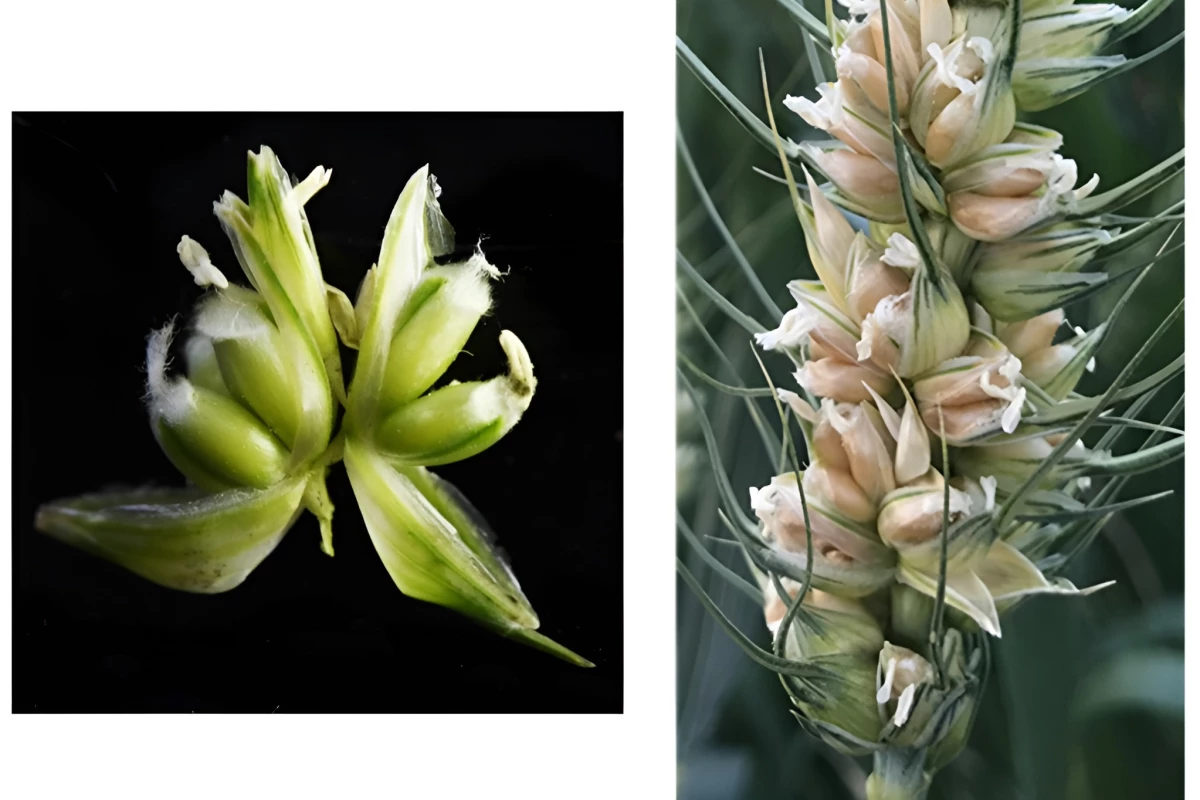Science
Genetic Breakthrough Could Triple Wheat Crop Yields

Scientists at the University of Maryland have made a significant breakthrough in wheat genetics that has the potential to triple grain yields from the same amount of land, water, and fertilizer. This advancement hinges on the discovery of a genetic mechanism in a mutant variety of wheat known as the multi-ovary (MOV) plant, which can produce multiple grains from each floret.
Typically, each floret in a standard wheat plant yields a single ovary and, consequently, one grain. However, the MOV variant can develop up to three ovaries per floret, significantly increasing grain production. Researchers have now identified the genetic basis for this trait, which could pave the way for breeding higher-yielding wheat crops.
Unlocking the Genetic Mechanism
In their research, the team meticulously mapped the DNA of MOV wheat and compared it with that of conventional bread wheat. They found that a previously dormant gene known as WUSCHEL-D1 (WUS-D1) becomes active in MOV wheat. This gene plays a crucial role in enhancing the development of additional female flower structures, such as pistils and ovaries.
By activating the WUS-D1 gene in cultivated wheat plants, breeders could potentially increase grain output significantly. According to Associate Professor Vijay Tiwari, co-author of the study, “Pinpointing the genetic basis of this trait offers a path for breeders to incorporate it into new wheat varieties, potentially increasing the number of grains per spike and overall yield.”
Implications for Agricultural Practices
This research, detailed in a recent publication in the Proceedings of the National Academy of Sciences, opens new avenues for enhancing wheat production globally. With the world’s population continuing to rise, the demand for food is more pressing than ever. The ability to produce more grain from existing agricultural resources could significantly impact food security.
Utilizing advanced gene editing techniques, researchers are now poised to further refine this trait, focusing on improving wheat yields to meet future demands. As agricultural challenges grow with climate change and resource limitations, this genetic discovery may well represent a vital step toward sustainable food production.
-

 Science4 weeks ago
Science4 weeks agoALMA Discovers Companion Orbiting Giant Red Star π 1 Gruis
-

 Top Stories2 months ago
Top Stories2 months agoNew ‘Star Trek: Voyager’ Game Demo Released, Players Test Limits
-

 Politics2 months ago
Politics2 months agoSEVENTEEN’s Mingyu Faces Backlash Over Alcohol Incident at Concert
-

 World2 months ago
World2 months agoGlobal Air Forces Ranked by Annual Defense Budgets in 2025
-

 World2 months ago
World2 months agoMass Production of F-35 Fighter Jet Drives Down Costs
-

 World2 months ago
World2 months agoElectrification Challenges Demand Advanced Multiphysics Modeling
-

 Business2 months ago
Business2 months agoGold Investment Surge: Top Mutual Funds and ETF Alternatives
-

 Science2 months ago
Science2 months agoTime Crystals Revolutionize Quantum Computing Potential
-

 Top Stories2 months ago
Top Stories2 months agoDirecTV to Launch AI-Driven Ads with User Likenesses in 2026
-

 Entertainment2 months ago
Entertainment2 months agoFreeport Art Gallery Transforms Waste into Creative Masterpieces
-

 Business2 months ago
Business2 months agoUS Government Denies Coal Lease Bid, Impacting Industry Revival Efforts
-

 Health2 months ago
Health2 months agoGavin Newsom Critiques Trump’s Health and National Guard Plans









